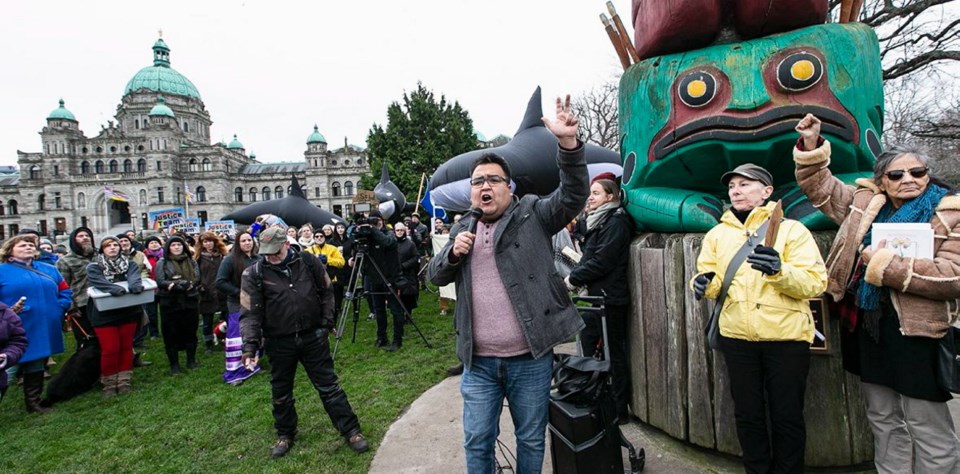Chief Don Tom of the Tsartlip First Nation on the Saanich Peninsula said he was disappointed but not surprised at Friday’s ruling.
“It further shows the NEB’s interests are oil and gas. They have clearly demonstrated that B.C.’s coast, the resident orcas and Indigenous culture and rights are not important,” he said. “And I think B.C.’s First Nations are being targeted for those reasons.”
In late November, Tom made an impassioned plea to the National Energy Board during oral traditional evidence hearings in Victoria. Saanich Peninsula Indigenous leaders told the board no less than their way of life was being threatened by the pipeline and the resulting increased tanker traffic.
At the time, Tom said increased tanker traffic will have an impact on the entire Salish Sea and B.C. coast and will not be limited to orcas, but will affect salmon and all sea life. The oral traditional evidence hearings were the result of the Federal Court of Appeal striking down approval of the pipeline expansion project, citing inadequate Indigenous consultation and the energy board’s failure to review the project’s impacts on the marine environment.
Friday, he said they were prepared for this kind of decision, and vowed the fight against the pipeline expansion is not over. “This ruling is not the be all and end all.”
While he said some First Nations will be preparing to go to court again, Tom anticipates there will be action from all corners of the province.
“I expect there may be, on the ground, political action by many British Columbians,” he said. “We have already seen demonstrations [in Victoria] and the blocking of the Johnson Street bridge, I imagine given the importance of the West Coast there is the potential for these activities to escalate.”



